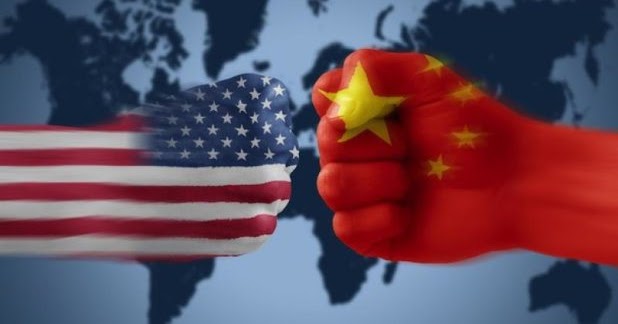This is why decarbonization is one of the US-China geopolitical wars. Report Cer

Demostenes Floros' analysis in the latest issue of "Geopolitica dell'Energia" by Centro Europa Ricerche (CER) on the race to decarbonise the economy
From the race to rearmament to the race to decarbonise the economy. The analysis of Demostenes Floros in the latest issue of "Geopolitica dell'Energia" of the Centro Europa Ricerche (CER) first of all highlights the financial risks already revealed "with the scam of green and white certificates", and which – explains the analyst of the Cer – “would consist in the search for a segmentation of the market – the so-called Green – in order to obtain a better leverage, that is, a higher return, as happened at the time of the Nasdaq for technology stocks, in the mid-nineties. In particular, the mechanism would have the same – worrying – scheme: Public investments; Absolute priority; Raising of capital; Bubble".
GEOPOLITICAL RISKS: THE US STRATEGY
In this context, the analysis also highlights a risk from a geopolitical point of view: "According to Guido Salerno Aletta, columnist for Milano Finanza , the 3 trillion dollars plan launched by US President Joe Biden to rebuild industry and infrastructure, focused on the zero emissions objective, it would aim to obtain a strategic advantage over China – reads the analysis -. Given that China's energy basket currently consists of 58% coal, the corresponding cost of decarbonising the Middle Country's economy is estimated at $ 15 trillion by 2050. Aletta states that 'The [US] challenge is twofold: on the one hand, it is about innovating products and processes in manufacturing, segmenting the global market and therefore creating technical barriers to the importation of goods that have lower environmental standards; on the other hand, it is envisaged to penalize with import duties foreign productions which, even if they comply with the new requirements, have been manufactured using fossil energy sources' ”.
THE RISK OF A NEW COLD WAR
The risk, Flores observes in his analysis, “is the dawn of a new Cold War. 'It is therefore (also) foreign policy, ready to condition its aid to compliance with climate objectives and to' rally the rest of the world 'in pursuing the zero emission objective. Try filtering it through the lens of the cost diversity of decarbonization in the US and China. Being able to make it a theme of competition for supremacy (some might think of a parallel with how the United States bled the Soviet Union by imposing the rearmament race as a priority; but that was another story), being able to impose on the Chinese people to accelerate Chinese decarbonization are, or at least they believe, an advantage for the American cause ', stated Massimo Nicolazzi, professor of Economics of Energy Sources at the University of Turin and former president of Centrex Italia ”.
On the other hand, the CER analysis recalls, compared to 5% of the world population, the United States of America produces 15% of global emissions. “They are also aware of the production and financial limits of fracking – an extraction technique that has allowed them to temporarily reduce their energy dependence. In the hypothesis that the US were able to impose a limit on the use of fossil fuels at a global level, they could completely redesign the geopolitical balance. Paraphrasing US Secretary of State Anthony Blinken, if Washington does not increase green investment, 'America will lose the opportunity to shape the world's climate future in a way that reflects our interests and values, and we will lose countless jobs. work'".
ENERGY TRANSITION
"Without a doubt, the United States would impose a brake on China's growth, while the Russian Federation and OPEC would pay the highest price", observes the CER analysis which highlights how China could play a game of its own: "Given that the Does China have no intention of dictating the timing of the transition, as demonstrated by the goal of its complete decarbonisation postponed to 2060, whether it is a real energy transition or US neo-nationalism? – Flores asks himself in the analysis -. The doubt is legitimate given that, at the same time, the United States is opposed to a binding agreement based on a – reasonable – principle, namely that it is the most developed economies, those with the highest per capita income and which pollute the most. time, to reduce carbon dioxide emissions to a greater extent ”.
According to a recent study by UK FIRES, given the current technological level, the zero emissions target “would be possible provided that people reduce their energy consumption by 60%. Given that the battle against global warming is not a question of generational conflict, between old polluters and young victims who will pay the consequences, the solution should not necessarily be sought in the so-called real degrowth ”, concluded the analysis.
This is a machine translation from Italian language of a post published on Start Magazine at the URL https://www.startmag.it/energia/ecco-perche-la-decarbonizzazione-e-una-questione-di-potere-tra-usa-e-cina/ on Sun, 16 May 2021 06:22:42 +0000.
